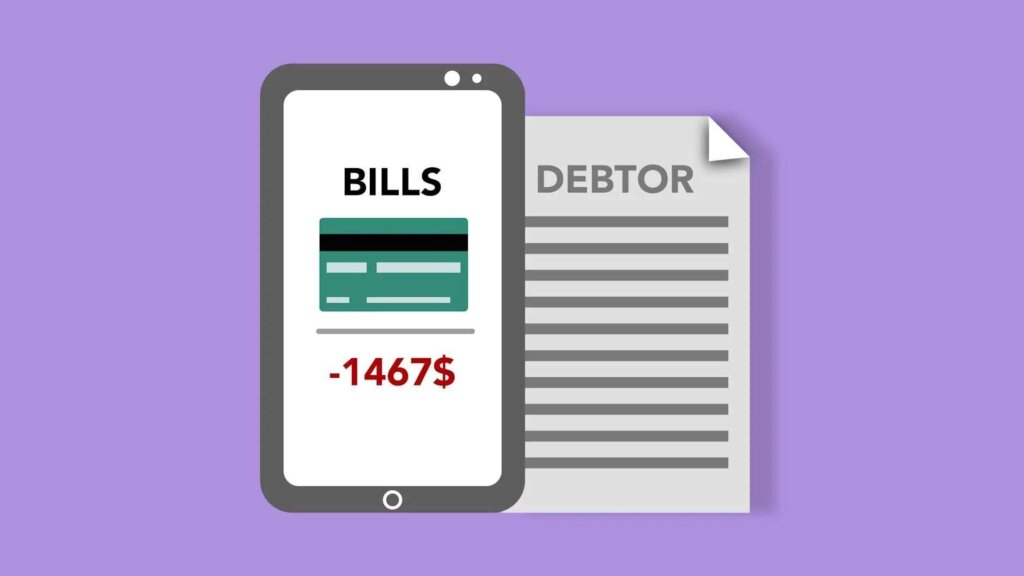
Facing an eviction in the Austin area is stressful, and the concerns about its impact on your financial future are valid. While an eviction itself won’t appear on your credit report, related financial issues like unpaid rent might surface if they lead to collections. However, your rental history is another story. Many landlords use rental databases to track past evictions such as realpage.com, which can make securing future housing challenging. Understanding how these systems work can help you strategize and maintain your financial health, even during tough times that make it that much more important to work with a knowledgeable apartment locator Austin! Let’s explore what an eviction really means for your financial record and what you can do about it.
Understanding Evictions
Evictions are a crucial aspect of renting that every tenant should understand – especially if you are looking for a new place to live, moving out from a friends place or have been turned down in the past for a new apartment. Unfortunately, being evicted can feel overwhelming and confusing, but knowing the basics of what you might expect down at the Austin courthouse can ease some of the stress. So, what exactly is an eviction, and how does this process unfold and what can you do about it? Let’s break it down to make it simpler for you to understand.
What is an Eviction?
Eviction is the formal process by which a landlord legally removes a tenant from a rental property. Think of it like a referee making a tough call in a soccer game; the decision is official and backed by rules kinda like those our favorite players make playing with Austin FC. In most cases, evictions happen when a tenant breaks the terms of the lease, such as not paying rent or causing damage to the property.
For more detailed information on the legal aspects and definitions, you might want to check out Investopedia’s explanation of eviction.
Steps Involved in the Eviction Process
Evictions don’t happen overnight. It’s a step-by-step legal process that provides both parties with opportunities to address the issue. Here’s a quick look at these steps:
- Notice to Vacate:
- This is the first move a landlord will make. A written notice is given to the tenant to resolve the issue or to move out. It’s like a warning shot, giving you a chance to fix what went wrong.
- Filing a Lawsuit:
- If the tenant doesn’t comply, the landlord may file an eviction lawsuit. This involves court proceedings and can take several weeks. It’s the part where the officials get involved.
- Court Hearing:
- Both parties present their cases to a judge. It’s your chance to explain your side, like when you get to defend yourself in a school debate.
- Judgment:
- Based on the evidence and arguments, a judge decides whether the eviction will proceed.
- Eviction Order:
- If the judgment is in favor of the landlord, an official order is given to evict the tenant. It’s the call that ends the game, so to speak.
- Vacating the Property:
- Finally, the tenant needs to leave the property by a specified date. Sometimes law enforcement may assist in ensuring the property is vacated.
For a deep dive into each step, you can read NLIHC’s Evictions 101.
Understanding these steps can make a daunting process seem a bit more manageable. It’s essential to know your rights and responsibilities as a Texan during an eviction to navigate the situation better.
Evictions and Credit Reports
Evictions can be a stressful experience, affecting your ability to find a new place to rent. Many people wonder if an eviction will appear on their credit report and how it might affect their credit score. Understanding the relationship between evictions and credit reports is essential to managing your financial health effectively and so you don’t get the two messed up.

Do Evictions Appear on Credit Reports?
Evictions themselves do not directly appear on credit reports OR Credit Karma as many of our clients often ask. However, the actions leading up to or following an eviction might which is why you should reach out as soon as possible for help in finding your next apartment!
If a landlord sends overdue rent to a collection agency, or if a court action is involved, these might show up on your credit history which is why time is of the essence. Think of it like a shadow, where the eviction doesn’t cast one itself, but the actions surrounding it might.
These actions impact your credit score because they show financial mismanagement, much like unpaid credit card debt does. Here’s what typically might happen:
- Collection Accounts: If the landlord reports unpaid rent to a collection agency, this can lead to a collection account being listed on your report and if you didn’t already know – property debt – specifically active property debt is a GIANT RED FLAG to apartment communities.
- Court Records: Court actions related to eviction, like judgments, might be recorded, even if the eviction itself is not which is why we help our client pre-screen before working with them for free (it’s just 1 of the things you get when working with a professional apartment locator like Ross Quade).
For more information on how evictions can impact your financial record, you can visit this article put together by Experian.
Judgments and Collections
Court judgments and collections can indeed appear on credit reports and have a lasting impact. Previously, judgments could stay on credit reports for up to seven years. However, recent changes have removed judgments from credit scores but it’s important that you check your credit and reach out to a credit couseling agency if you need help in getting it removed.
Despite this, an eviction judgment can still affect you. If a judgment results in a collection account, it might still harm your credit score DEPENDENT on the age of the eviciton and if there is any outstanding rental debt amount. Think of judgments like a storm that leaves a puddle; the storm may pass, but the puddle remains until addressed. Here are a few key points:
- Judgments: Once recorded, they reflect a legal decision regarding owed debt and may influence future rental applications although they no longer appear on credit reports.
- Collections: These accounts may remain for seven years and could affect your ability to secure loans, similar to how a previous flood might make insurers wary. If you check your credit on annualcreditreport.com consider calling the collection agency and doing an offer in compromise to get the amount reduce if you pay it in full. We’have had multiple clients obtain a successful reduction in the amount owed after speaking with Ross Quade.
To find out more about judgments and their removal, you can also check this guide from FindLaw.
Understanding these nuances helps you navigate the financial landscape, enabling you to address potential issues proactively so you aren’t stuck wondering whether you should move to San Antonio or live illegally on a lease with your ex-boyfriend’s Mom that offered a couch for you to sleep on? By focusing on resolutions like debt repayment or disputing errors, you can improve your future housing opportunities so you aren’t wondering whether or not you’ll be approved for an apartment with an eviction on your record.
Eviction Impact on Rental History
Evictions can have a lasting impact on your rental history for both private home rentals and corporately owned apartment communities so it’s important to understand how this information is managed and used by landlords. Let’s break down how evictions might show up on your rental record and what landlords see during a background check.
Background Checks and Rental Applications
When you apply for a new rental, landlords often conduct background checks to get a clear picture of your rental history. But what exactly are they looking for?
- Eviction Records: Landlords will check specifically for any past evictions. This record can be a red flag because it shows previous legal action taken against you for not following a rental agreement. Evictions can stay on your record for up to seven years, impacting your ability to rent in the future. More on this can be found in this guide provided by RedFin on renting with an eviction on your record.
- Credit and Payment History: Besides evictions, landlords look at your credit history to see how you handle financial responsibilities. A history of late payments can be concerning to them. Expert Tip: They are also going to check and see if you have an oustanding property rental debt for the eviction that is still showing on your creidt report.
- Criminal Background: Some landlords also check criminal records. Any criminal activity can be a barrier to renting. This is seperate from eviction checks but it’s important to know you’ll need to pass their other screening requirements related to income qualifications, credit qualificaiton and background qualification.
- References from Past Landlords: They may contact past landlords to gauge your behavior as a tenant so that’s just another reason to work with the best apartment locators in Austin! Positive references can sometimes offset issues like an old eviction.
The process of checking most of these records with screening company is usually straightforward but detailed, as landlords aim to minimize risk and reduce the chance that you might also disrupt their other tenants. Services like those listed in tenant screening resources explore every aspect of a potential tenant’s background which is something that might be beneficial for you to review if you’d like to learn more about the specifics of tenant screening.
Understanding these details can shed light on why certain elements, like an eviction, can make finding a new place challenging. It’s like having a black mark on an otherwise clean slate, acting as a GIANT caution sign for potential landlords.

Long-Term Effects of an Eviction
Evictions can feel like a storm that leaves damage in its wake, but understanding the long-term effects can help in weathering the aftermath. It’s crucial to know how an eviction can influence your chances of getting approved for a second chance apartment.
Future Apartment Rental Opportunities
Finding a new place to live after an eviction can be as challenging as finding a needle in a haystack as we’ve previsouly covered. Landlords often conduct background checks, and an eviction can stand out like a red flag making it all the much more important to discuss your options with our free apartment locating services so you don’t waste excessive amounts of money on application and administration fees. Here are some ways an eviction might affect your future housing opportunities:
- Rental Applications: Many landlords and property management companies use tenant screening reports to assess applicants. If your eviction appears on such a report, it could make securing a rental agreement more difficult.
- Higher Deposits: If you do secure a place, you might face higher security deposits or additional fees, as landlords might perceive you as a higher-risk tenant.
- Limited Choices: Your choices may narrow, leading you to consider properties that are less desirable or in less convenient locations.
For more insights on how an eviction can impact future rentals, this Impact of Eviction on Credit and Future Housing article provides a thorough examination that would be helpful to review.
Credit Score Recovery
Your credit score is like a report card for your financial behavior, and an eviction can certainly leave a mark. But don’t lose heart—here are some tips to bounce back:
- Check Your Credit Report: Obtain a copy of your credit report from each of the main credit bureaus and scour it for inaccuracies – we always recommend checking Experian via AnnualCreditReport.com since it’s free. Errors can drag your score down unnecessarily but Lending Tree breaks down what to look for.
- Settle Outstanding Debts: If the eviction resulted from unpaid rent, settling this debt can help start the repair process. Landlords appreciate clear records of resolved issues.
- Create a Budget: Establish a budget to manage your money better and prevent future financial hiccups. A well-managed budget demonstrates responsible financial behavior.
- Consider Credit Counseling: If you feel overwhelmed, seeking the guidance of a credit counselor might be beneficial. They can provide personalized strategies to help improve your credit score.
- Build a Positive Rental History: Consider asking future landlords to report your good payment history to credit bureaus and if they won’t there are paid services you can use to report your on-time rent payments to the 3 major credit bureas. Consistent, timely rent payments can positively reflect on your credit over time.
For more guidance on repairing your credit after an eviction, this article from Equifax offers valuable advice for those that would like to read more about the topic.
Evictions Might Seem Overwhelming
Taking proactive steps can help reclaim your stability and confidence in the rental market. It’s like getting a red mark on your school report card; it stays with you and can affect your opportunities. By decoding how this process works, you can take proactive steps to mitigate any negative effects.
Key Takeaways
- Evictions and Credit Reports: An eviction doesn’t automatically appear on your credit report, but if a landlord reports unpaid rent to a collections agency, it could affect your credit score similar to any other unpaid debt. This might influence your ability to secure loans or credit cards in the future.
- Rental History: While the eviction itself may not be on your credit report, it can be reflected in tenant screening reports. Many landlords use these reports to decide whether to rent to you.
- Duration on Records: Typically, an eviction can stay on your record for up to 7 years although there are some communities that might be willing to look past thise timeline – especially if you have worked to restore your credit, income and have resolved any oustanding property debt. This timeframe is similar to other negative marks like Chapter 7 or Chapter 13 bankruptcies but eventually falls off, providing a fresh start.
Steps to Take Control
You might be wondering, how can you deal with an eviction on your record? Here are some actionable steps:
- Open Communication: Talk to your former landlord or apartment community property manager. Sometimes, settling unpaid debts might result in the eviction not being reported!
- Check Your Reports: Regularly checking your credit on sites like AnnualCreditReport.com helps you stay informed about what’s affecting your credit score.
- Financial Counseling: Consider seeking advice from financial experts or legal aid to understand your options for clearing rental debt.
- Demonstrate Change: If you have an eviction, showing steady employment and good financial habits can help reassure future landlords that you’ve got the income to support your on-time rent payments. Even if rental prices are coming down in Austin, property managers are still often looking for 3x the monthly income to qualify and obtain approval to move into the apartment complex.
By keeping these points in mind, you’ll be better equipped to handle any long-term effects an eviction might have on your rental history and credit. It’s like preparing for a storm; understanding the implications helps you navigate the challenges with greater confidence and security!

